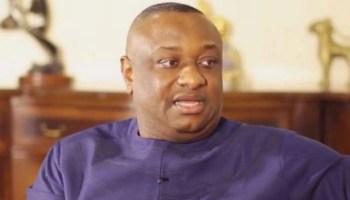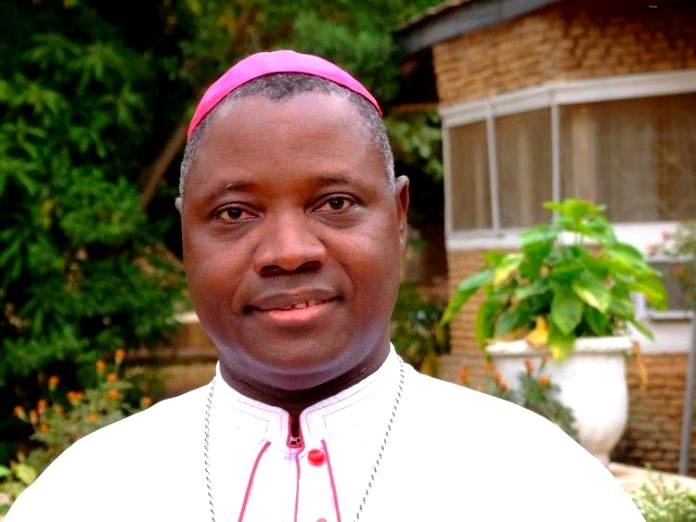The air transportation sub-sector has been described as a major drive for travel, tourism industry and key revenue spinner for a country through international tourist arrival and departure.
With the information obtained on the website of Nigeria Civil Aviation Authority (NCAA) Nigeria has 20 functional airports, five of which are serviceable international airports as well as many regulated airstrips and heliports.
The country also has 23 active domestic airlines; 554 licensed pilots; 913 licensed engineers and 1700 cabin personnel
The Africa’s most populous country, also has a destination for over 22 foreign carriers and Bilateral Air Services Agreements with over 78 countries, all of which makes aviation sector, a critical element of the nation’s transportation system and its economy.
With all these potentials, stakeholders in the industry have, however, observed that Nigeria cannot attain its full potential in the aviation sector without a national carrier or national flag carrier
A recent report on aviation reveals that Nigeria loses about $ 2.3 billion on annual capital flights to foreign airlines because of lack of national carrier or flight carrier.
For instance UK airlines – British Airways and Virgin Atlantic – operate 22 frequencies weekly to Nigeria raking in millions of dollar much needed to boost our foreign exchange liquidity and grow.the economy.
Stakeholders have, therefore underscored the urgent need for Nigeria to have a national carrier or national flag carrier.
As explained by industry experts, A National carrier is the airline that is wholly owned by the government and associated with national identity of the country.
Ethiopian Airlines is an example of a national carrier that is fully owned by the Ethiopian government.
Founded in 1945, the airline commenced operations in 1946 and has been waxing stronger remaining one of the mainstay of the Ethiopian economy
A flag carrier on the other hand, is an airline that is subsidised or partly owned by the country in which they are registered. The airline often gets preferential rights or privileges by the government for international operations.
For instance, British Airways is the flag carrier of the United Kingdom. Although, it sounds nationalistic, it is not a state-owned airline.
British Airways was privatised in 1987 and it is currently wholly owned by IAG, an Anglo-Spanish airline consortium.
In Nigeria, the defunct Nigeria Airways was established in August 1958 after the dissolution of West African Airways Corporation (WAAC)
The airline became the national carrier of Nigeria in 1961 when the federal government fully acquired the airline by raising its shareholding in the company to 100 per cent.
In its heydays, Nigeria Airways had at least 30 aircrafts, but the airlines started having challenges owing to military incursion, mismanagement, corruption and bad debts.
Nigeria airways finally ceased operations in 2003 when it had only Boeing 737-200 as its sole serviceable aircraft and it was liquidated a year later.
After the collapse of Nigeria Airways, many attempts had been made to relaunch, float and run a virile national carrier but all failed .
The latest was the efforts to establish Nigeria Air during the administration of former President Muhammadu Buhari which became contentious, unclear and allegedly fraudulent.
It was therefore, not a surprise that conflicting opinions were expressed when Mr Festus Keyamo, Minister of Aviation and Aerospace Development, recently pronounced that the Federal Government would establish a national carrier.
The minister had said that the Federal Government had no plan to collaborate with any local airlines for the establishment of a national carrier.
According to Keyamo, designating a local airline as the country’s national carrier would confer undue advantage on one operator over others.
In separate interviews with the News Agency of Nigeria (NAN), while some stakeholders viewed the decision as a welcomed development, others said it is unrealistic and bound to fail like other attempts of his predecessors.
The Chairman of Nigerian Aviation Unions, Mr idowu Adesola told the News Agency of Nigeria (NAN) that the Federal Government`s plan to establish national carrier without involving any local airlines was in the best interest of the nation.
According to him, nearly all local airlines in the country were not up to world class standard.
“The minister is quite right, because most of the local airlines are operating with series of disappointments by cancellation of flight movements at the detriment of passengers and without any form of remorse.
“Moreover, if you look at it critically, most of our airlines are not having what it takes to be rated amongst world class standard.
“ Therefore, there is need for the minister to take this giant stride in order to take us out of the quagmire which his predecessors had left behind for him,” he said.
Corroborating Adesola’s position, Mr Hector Naadi, Chairman of Joint Consultative and Negotiating Council (JCNC) said Keyamo’s position for federal government to single handedly establish national carrier was a good one.
“In taking this decision, first of all, the minister suspended the project by his predecessor, Hadi Sirika, and he is privy to informations and revelations that we do not know.
“I have also seen certain things that I can’t be telling you, which others have not seen. So, if he says he is not going to use the local carries for the national carrier, he may have some reasons.
“The Minister may also have access to certain information that cannot be made available,” he said.
He urged the Nigerian populace not to be hasty, but to wait patiently to get it right for the national carrier project.
“if we can be patient, we will benefit from the national carrier will as a nation. To me, the minister is on board and on point, “ he added.
Expressing contrary views, Capt. John Ojikutu, the Chief Executive Officer of Centurion Security and Safety Consults, told NAN that Keyamo might not succeed in establishing national carrier without collaborating with reliable and viable local airlines.
“Other than the Ethiopian Airlines, how many countries in Africa with credible financial discipline have National Carriers that are thriving?
“We have made more than three attempts spending scarce resources of the government to establish national carrier, why not try alternative with designated Nigerian credible Airlines?, “he queried
Ojikutu stated that doing anything different from embarking on national flag carrier would be another attempt to waste government scarce money.
“Government must not put kobo in purely any aviation commercial services, which is the global practices, except the aeronautical safety and security services.
°It will be another wastage like Air Nigeria in 1993 under the military administration; like Virgin Nigeria in 2000 by former President Olusegun Obasanjo’s Administration.
The wastages went on various tables of the former Minister, Stella Oduah Road Maps and landed on the tables of Sirika in 2016.
“You can see where the journey started and where we are now.
“The best option is to establish a national flag carrier not a national carrier which the political office holders want in order to fly free, he said
In achieving this, Ojikutu said government must assess the local and foreign assets and liabilities of three or four major domestic airlines.
He said government should also Invite foreign and local credible technical partners and investors but not any foreign airlines operating into Nigeria should be a partner.
According to him, shares ratio should be as follows: foreign technical partners and investors 30 per cent, Nigerian technical partners and investors 40 per cent, Nigeria governments (FG/States) 10 per cent Nigerian public through stock market 20 per cent.
In his opinion, Allen Onyema, the Chief Executive Officer (CEO) of Air Peace, said the push for a national carrier by the Minister is obsolete.
Onyeama argued that the country does not need a national airline owing to the difficulties of running such a business.
“The national carrier thing is a moribund idea that has been jettisoned several decades ago by countries,” he said
The CEO stressed that many airlines that bear country names are just “flag carriers” and are not owned by nations
It is a general view by the stakeholders that the country deserves a national airline as catalyst to its economic growth and tourism development
They believe that, considering its crucial role in facilitating trade, tourism and economic development, achieving a viable national carrier or fag carrier is undoubtedly a focal point in Nigeria’s aviation flight path.(NANFeatures)
By Gabriel Agbeja,




